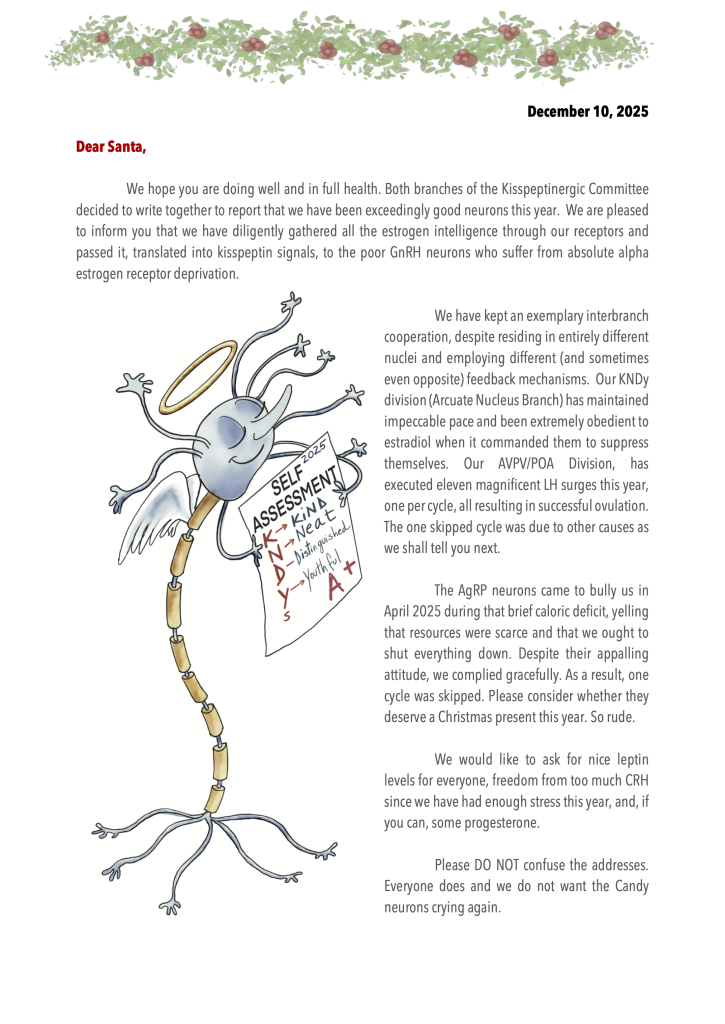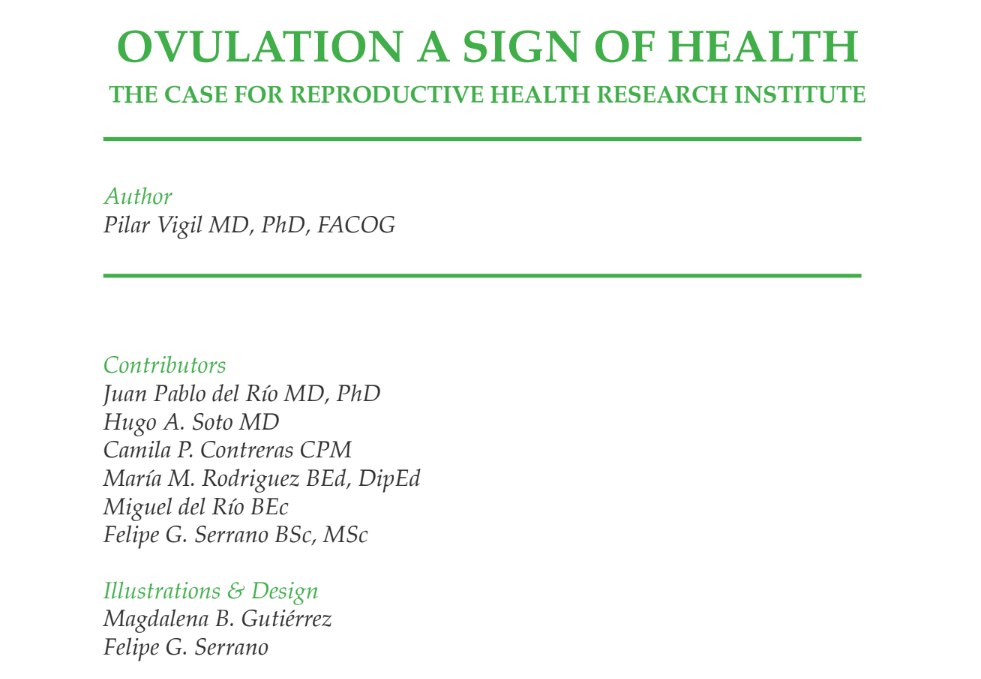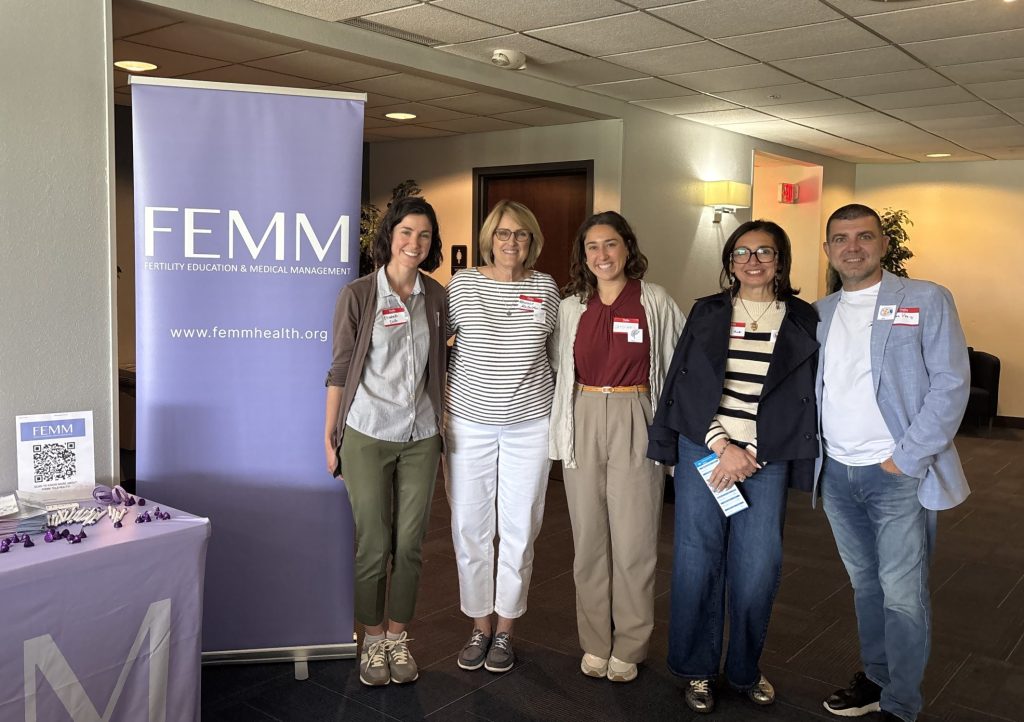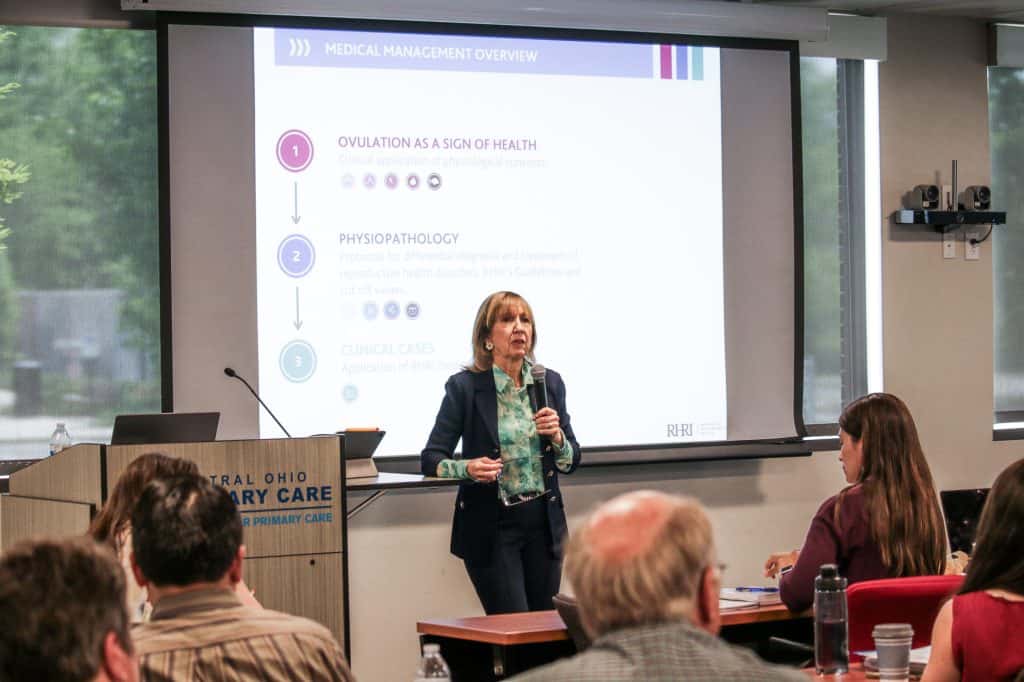We tend to think that ovarian aging is something that happens when we’re well into middle age. But a woman’s ovarian age doesn’t necessarily correspond to her chronological age. Premature ovarian aging does happen.
To determine how well a woman’s ovaries are functioning, we have to look at her “endocrinological age.” Certain hormonal markers can give us clues about the quantity and quality of her eggs.
Follicle-stimulating hormone (FSH) is an important indicator of a woman’s ovarian reserve. High FSH levels often indicate that something is wrong with ovarian function, most likely diminished ovarian reserve. When ovaries have fewer eggs or respond poorly to hormonal stimulation, the brain produces more FSH to try to stimulate follicle development.
Premature ovarian aging can manifest in several ways.
In primary ovarian insufficiency, the ovaries stop working optimally much earlier than average. Women with primary ovarian insufficiency can still release an egg and get pregnant, and FEMM medical management can help with this. Premature ovarian failure on the other hand is when the ovaries stop functioning completely before age 40. This is a relatively rare condition, and it affects 5-10% of patients.
Staying Healthy
If you’re experiencing declining ovarian function, you don’t need to settle for a life full of health problems. At FEMM, we believe that ovulation is a vital sign of health, just like heart rate or blood pressure. Understanding that ovarian aging happens to every woman helps women learn that it’s a natural part of the reproductive lifecycle. With the right medical care and lifestyle changes, you can maintain good health and in the case of primary ovarian insufficiency, even positive fertility outcomes.
Additional research is needed to fully understand ovarian aging. Some promising studies show that blocking FSH in mice leads to a decrease in Alzheimer’s disease. There’s also the potential to reduce obesity and osteoporosis using this method. Hormone replacement therapy when appropriately administered has been shown to have positive outcomes. This treatment can help make up for decreasing levels of estrogen and progesterone and mitigate the effects of ovarian aging. It has been proven to alleviate symptoms, increase bone density and reduce fracture risk, cardiovascular risk, depression, mood changes, and other mental health challenges.
If you are interested in learning more in-depth about ovarian aging, consider our Advanced Medical Management course on the topic. Learn more here! If you need help navigating perimenopause, menopause, or are worried about ovarian insufficiency or premature ovarian aging, FEMM providers would be happy to help you. Connect with a FEMM provider here. At FEMM, we are here to walk with you and empower you to optimize your health and your fertility.







